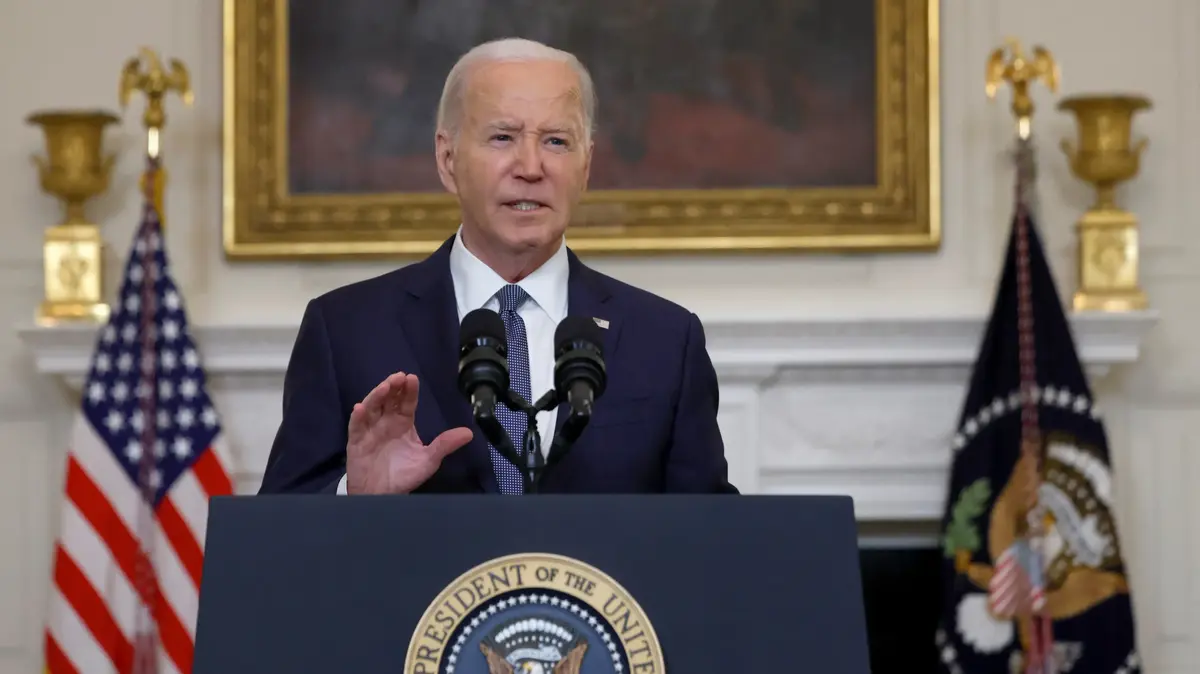The recent proposal by President Joe Biden regarding the Israeli-American plan for a prisoner exchange deal with Hamas has sparked significant discourse among political and military analysts in Israel. Biden outlined a detailed three-phase approach aimed at achieving a total ceasefire, releasing hostages, and initiating the reconstruction of Gaza. This plan has elicited varied responses from Israeli officials and media, highlighting the intricate dynamics between the US and Israeli governments.
Ofir Falk, political advisor to Prime Minister Benjamin Netanyahu, described Biden’s speech as ‘political’ with unclear intentions but reaffirmed that the proposal is based on an outline agreed upon by Israel. Despite initial reluctance, the overarching goal remains to secure the release of the abductees, even if it involves making substantial concessions.
According to the plan, the first phase involves a six-week ceasefire, the IDF’s withdrawal from Gaza population centers, and the release of abductees in exchange for hundreds of Palestinian prisoners. Humanitarian aid would also flow into Gaza, allowing displaced Palestinian citizens to return to their homes. The second phase aims at releasing all remaining abductees, including soldiers, with continued negotiations extending the ceasefire if necessary.
The third phase focuses on the reconstruction of Gaza and the return of the remains of abductees held by Hamas. This phase has drawn criticism for potentially allowing Hamas to maintain its military power while Israel remains constrained.
Israeli military analyst Ron Ben Yishai noted the considerable pressure on Israeli leadership to show flexibility and willingness to end the ongoing conflict, despite the domestic political risk to Netanyahu. The plan’s revelation by Biden, according to Yishai, ensures that Hamas is now publicly accountable for its response.
Commentator Ben Caspit argued that Biden’s disclosure was a strategic move to hold both Hamas and Netanyahu accountable, questioning the censorship motives within Israel’s government. The escalating political tension, especially with potential shifts in the coalition, casts doubt on the success of the prolonged negotiations.
Itamar Eichner, a political correspondent, stressed that Biden’s proposal places heavy pressure on Israel, compelling it to navigate complex domestic and international landscapes without compromising its humanitarian and security interests. The potential retention of Hamas’ sovereignty in Gaza remains a contentious point.
The backdrop of these negotiations includes significant political calculations, notably with Minister Benny Gantz’s potential retirement from the government. Biden’s proactive stance reflects growing frustration from the American side over the stalemate, underlining his vehement opposition to the hardline elements within Netanyahu’s administration who are perceived as prolonging the conflict.
- Analysts agree that the deal, although challenging, is essential for stabilizing the region. They emphasize that communication and coordination between the US and Israel are crucial for the success of the proposed negotiations.
- There is a consensus that Biden’s intervention was critical, as it establishes a framework that could potentially lead to a long-term resolution, despite the significant concessions required from both sides.
- Netanyahu’s position is precarious, balancing between internal political pressures and international expectations. His cautious approach aims to avoid unilateral concessions while ensuring the safety and eventual release of the abductees.
- The humanitarian aspect of the plan cannot be overstressed, with potential positive implications for Gaza’s civilian population amid the restoration of basic necessities and infrastructure.






